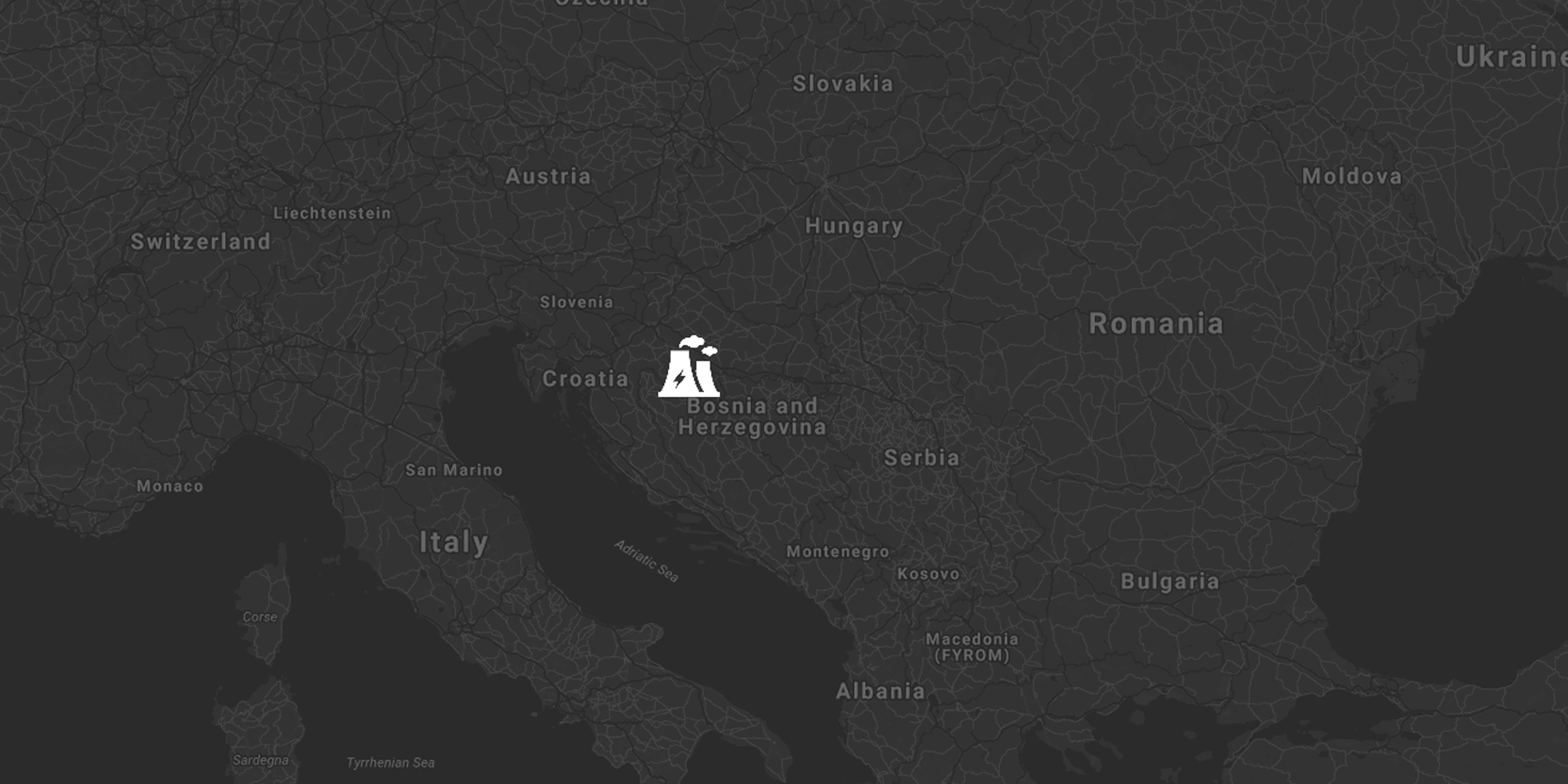Kamengrad lignite power plant, Bosnia-Herzegovina
An idea to build a power plant at the open-cast Kamengrad coal mine near Sanski Most in the Federation of Bosnia and Herzegovina has been around for years, but in November 2017 it took a step forward with the signing of a Memorandum of Understanding between Energy China International and the construction supplier Lager d.o.o. for a 2 x 215 MW plant.

Stay informed
We closely follow international public finance and bring critical updates from the ground.
Background
An idea to build a power plant at the open-cast Kamengrad coal mine near Sanski Most in the Federation of Bosnia and Herzegovina has been around for years, but in November 2017 it took a step forward with the signing of a Memorandum of Understanding between Energy China International and the construction supplier Lager d.o.o. for a 2 x 215 MW plant.
Few details are available about the plant, and it has no environmental permit and no financing. As with other plants across the region, unrealistic employment promises have already been made. In December 2017 head of the Sanski Most District Faris Hasanbegović stated that it would provide 1000 workplaces.
This does not appear to have convinced local people, however. As it would be a new power plant, it has attracted much more opposition locally than most other planned plants in the country. Sanski Most is located on the beautiful river Sana and prides itself on having no fewer than nine rivers in the district altogether. As a scenic and green area many of its residents feel that the power plant will spoil its potential for agriculture and tourism rather than bringing prosperity.
At a public debate on the adoption of the Una-Sana Canton spatial plan in August 2018, Sanski Most residents and the local council demanded the removal of the power plant project from the plan. This was carried out, although the plan was never adopted. In November 2019, another presentation of the Kamengrad coal power plant project appeared on the agenda of the Sanski Most Municipal Council. However, the meeting was cancelled after public pressure.
Another issue is that the concession for the mine was awarded to Lager d.o.o. after a bankruptcy procedure was carried out for the previous operator, RMU Kamengrad, but in 2017 the bankruptcy decision was declared illegal by the Constitutional Court of Bosnia and Herzegovina and returned to the Una-Sana Canton court.
As of early 2024, the plant is very unlikely to go ahead but has not been officially cancelled.
Latest news
China-backed coal plants on EU’s doorstep hide huge carbon costs
Bankwatch in the media | 14 January, 2020Feasibility studies for two major coal power projects in Bosnia and Serbia – backed by Chinese banks – downplay the costs of emissions and ignore air and water pollution. Source : China-backed coal plants on EU’s doorstep hide huge carbon costs
Read moreResidents of Tuzla protest over extremely high Levels of Air Pollution
Bankwatch in the media | 13 January, 2020Following last night’s protests in the center of Tuzla over extremely high levels of air pollution, residents announce the continuation of the protests on Wednesday. They claim to have difficulty breathing and are concerned about the rise in the number
Read moreOnesnaženi zrak nad Balkanom ogroža tudi EU
Bankwatch in the media | 10 January, 2020Največ prezgodnjih smrti zaradi škodljivih izpustov v zrak je v Severni Makedoniji.Source : Onesnaženi zrak nad Balkanom ogroža tudi EU
Read moreRelated publications
How to advance a just transition in the Western Balkans: Recommendations for the EU and national institutions
Briefing | 27 September, 2024 | Download PDFThis briefing takes stock of the current situation with the decarbonisation of the Western Balkans’s economy and summarises the progress on just transition in each country.
Comply or Close 2024: six years of deadly legal breaches by Western Balkan coal plants
Report | 17 September, 2024 | Download PDFThe end of 2023 marked six years since the deadline passed for power plants in the Western Balkans to meet new air pollution standards. Yet the deadly air pollution from the region’s mostly antiquated coal power plants has hardly decreased at all since 2018.
From quantity to quality: how to improve the infrastructure project selection process under the Western Balkans Investment Framework
Report | 29 August, 2024 | Download PDFThe Western Balkans Investment Framework provides finance and technical assistance for investments, particularly in infrastructure, energy efficiency and private sector development.
